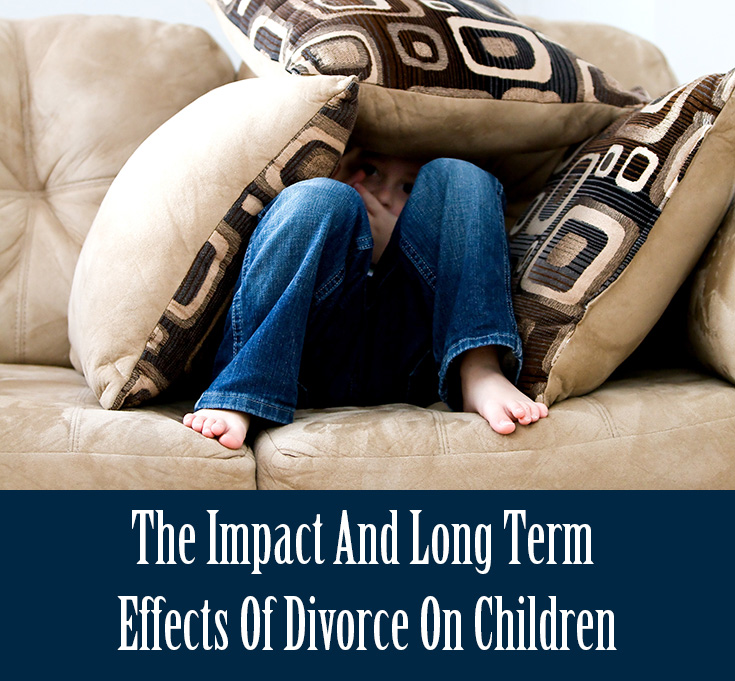Parents-to-divorce are always worried about how their children will take the news about the end of the marriage, how they will handle the process and the outcomes. But the truth is that the long-term effects of divorce on child are to be at the center of attention. While you can spot short-term effects, such as behavioral disorders, increased anxiety, or academic troubles, and solve them without delay. It will be more difficult to predict and prevent the impact of divorce on your children in the long run.

Discover what the latest research claim about the long-term effects of divorce and aim to supply your kids with a steady and healthy future but not only happy childhood.
‘Sleeper Effect’
Many children overcome their parent’s divorce without any visible effects. They seem to realize that such an outcome is the best for their family and put up obediently with their parent’s decision.
But in most cases, things are not as simple as they appear to be. Kids often switch in the ‘sleeper mode,’ subconsciously hiding that their parents have got an online divorce and their family has fallen apart. In such a situation, a postponed reaction is expected. While children may seem to function and feel more than well right after the divorce, something may trigger them to reflect on their parents’ separation in five or even ten years, ruining their lives then.
Still, the research has proved that although kids of divorce continue to feel deep sorrow and regret for their parents to move apart, they manage to grow responsible, independent, and even physically more well comparing to their peers.
But there is no reason to deny that the long-term effects of divorce on child development might have led to emotional and social issues in a 10-year perspective.
Emotional Effects
Although children manage to live through their parents’ separation, they experience complications in their adult life in the aftermath. Here are some long term psychological effects of divorce on children:
- Fear of being betrayed, abandoned, and rejected;
- Increasing anxiety as children enter adulthood (connected with feelings and memories about parents’ divorce);
- Vulnerability to the experience of loss;
- Feeling angry, resenting, and hostile;
- Psychological well-being deterioration;
- Early adulthood depression;
- Decreased life satisfaction.
Such psychological outcomes of the parent’s divorce may significantly lower the quality of life and mental and emotional wellness of children of divorce.
Social Effects
Long-term effects of divorce may result in severe damages in the social life and relationships of the divorce kids. They commonly experience the following hardships when it comes to social interaction:
- Poor relationships lacking happy family relationships model;
- Decreased ability to create and nurture supportive friendship and romantic relationships;
- Inclination to end up marriage with divorce;
- Early sexual experience;
- Fear of following parents’ footsteps regarding unhappy marriage;
- Lack of trust in a spouse-to-be;
- Decreased socioeconomic status;
- Less affectionate and weaker relationships with their parents.
The children of divorce usually understand that their parents have taken the divorce decision for the better. But with the price of a ruined family, in the long run, it usually makes children reflect on their bitter memories and experience on their own adult life with unpleasant results as well.
What Parents Can Do
Still, the first thing to remember is that not every single kid of divorce experiences all the above-mentioned issues and disorders. But for parents to stay on the safe side and prevent the long-term effects of divorce on child, it is advised to combine outside help and parental effort to guarantee a happy future for their kids.
A qualitative preventive program for divorce families is expected to cure both parents and children to eliminate any future complications. It may help children to overcome divorce-related anxieties, confusion, and blame. Assist children in expressing their anger and other feelings related to divorce. When it comes to parents, a good program is to help them create an efficient custodial plan and develop steady and positive relationships between parents and with children.
But most of the results rely on parents themselves. Their efforts to perform better will predetermine the successful aftermath. Parents should let their children feel that they are loved and cared about equally by both of them. It is strongly recommended to keep children out of any parental conflicts. Parents should provide their kids with positive adult role models. It is vital to nurture the kids disciplined, responsible, and independent by showing your trust in them. Before divorced parents decide to start a new family, they have to keep in mind their duties to the first family.
All in all, the commitment of both parents and their readiness to cooperate with appropriate support specialists will allow to diminish the negative long-term effects of divorce on their children and guarantee a happy future for them.






Speak Your Mind